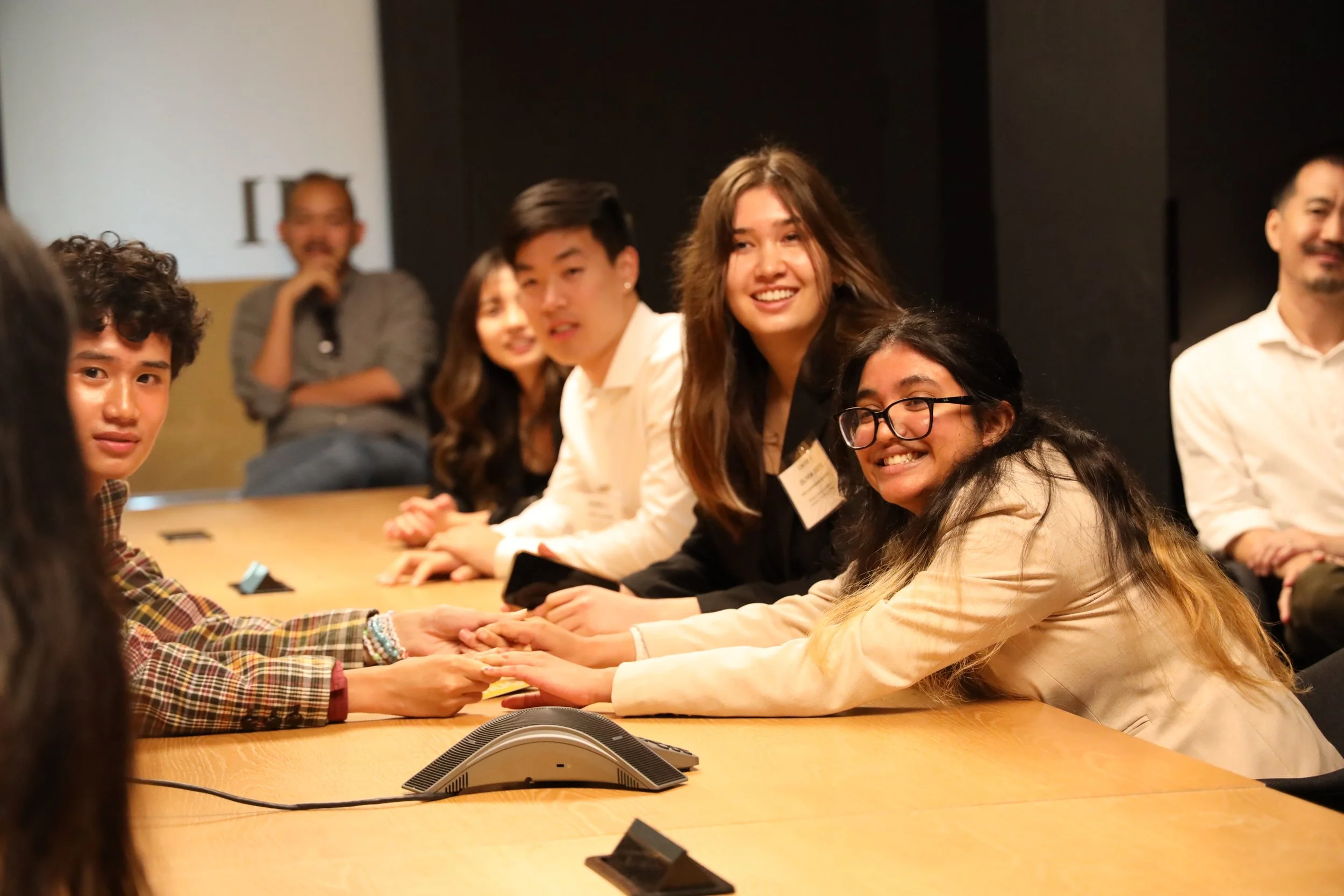Our mock endorsements panel was this week. Guests Dr. Andrew Murphy, Marissa Roy, and Fatima Shahnaz Iqbal-Zubair attended and posed as conservative, moderate, and leftist panelists, respectively. The other campaign managers and I had joined the policy team in briefing our candidate, Meghna, on her answers—the mock endorsement questionnaire had prompted us to provide our campaign’s stance on various policy issues and other information about her plans for office. Godfrey Plata, who organized these panelists and sent us the questionnaire in advance, was also in the conference room as we sat down.
Once the guests introduced themselves and their characters, the panelists began asking questions related to the prompts found on the questionnaire. They were more thorough than we had expected, however. For example, one panelist discussed Megnha’s youth and lack of experience in the public sphere as a potential detriment to her efficacy as an assemblymember. Meghna responded that “data doesn’t have an age limit”—that it takes no life or professional experience to be able to interpret the issues facing her constituents. Other questions interrogated the amount of funds we had raised and her financial viability, and our finance team had to step in to provide precise plans for the allocation of our budget. With topics ranging from intricate policy plans to abstract personal values, the questions forced us to consider every aspect of our campaign—not just how we wanted to change the district, but why. Meghna, as always, was a fantastic orator and quick on her feet. I enjoyed being able to see what aspects of the campaign the panelists were more passionate about, and which questions they considered vital to their understanding of what Meghna’s term might look like.
I found it interesting that the panelists admitted that endorsements could be viewed as an obstacle to “true” democracy; voters might prefer candidates based on their endorsements and not on their actual platform. When a candidate pursues endorsements effectively, this acts as a shortcut to garner more votes—one that doesn't involve the stresses of large-scale direct voter outreach. Endorsements lend credibility to candidates, and this credibility is not always justified. For example, we learned that some endorsement panels simply make decisions based on personal connections, endorsements from other entities, what they might gain from a potential candidate’s election, and other factors wholly unrelated to one’s goals for office. The mock endorsements panel was one of many experiences from my time with the CAUSE Leadership Academy that convinced me that prioritizing connections with influential community leaders can be infinitely more valuable than simply reaching the highest number of people possible.
As I listened to this panel, I couldn’t help but hope for a future similar to the one we proposed—one that prioritized housing for all, accessible healthcare, better education, and public safety measures in the ways Meghna discussed. Growing up in a highly conservative area of Orange County, I felt that tradition was the default and that reforms I supported were inherently radical and obscure. Even as I made friends in college who shared my values, some small part of me worried that, as I had been told in the past, our leftist beliefs were simply a symptom of youth and naivete. That we were silly for hoping for such things. Hearing a room full of highly experienced and respected organizers agreeing with our platform was inexplicably reassuring to me—maybe because it meant that it was not so radical to hope for these changes after all.
The views and opinions expressed in this publication are those of the author and do not reflect the views or positions of CAUSE or the CAUSE network.
Written by Olivia Sieve, Leadership Academy 2023 Intern.
The CAUSE Leadership Academy (CLA) for students is a nine-week, paid, internship program that prepares college undergraduates to lead and advocate for the Asian Pacific Islander community on their campuses and beyond.

